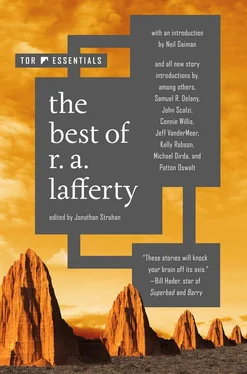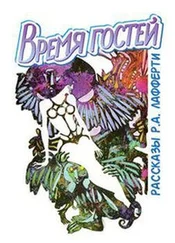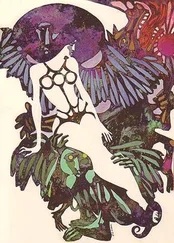1. Leslie Whitemansion drove on a Von Sauerbronn “Special” of fine German craftsmanship. This machine, popularly known then as the “whizzer,” would get you there and it would bring you back. It was very roadworthy and surprisingly fast.
2. Kirbac Fouet was on an Ernest Michaux Magicien, a splendid machine. It had a socket into which a small sail might be fitted to give greater speed on a favorable wind.
3.X. Paul McCoffin was on a British Royal Velocipede. There are two things that may be remarked about the British Royal: it had solid rubber tires (the first rubber-tired bicycle ever), and it had class. It had that cluttered austerity of line that only the best of British products have.
4.Jaime del Diablo was on a Pierre Lallement “Boneshaker” with its iron-tired wooden wheels, the front one much larger than the rear.
5.Torres Malgre was on an American-built Richard Warren Sears Roadrunner, the first all-iron machine. “The only wood is in the heads of its detractors” was an advertising slogan used for the Roadrunner.
6.Inspiro Spectralski (Is he a Man? Is he a Cannon Ball?) was riding a McCracken’s Comet. This Comet had won races at several other county fairs around the state.
7.Hubert Saint Nicholas had a machine such as no one in the state had ever seen before. It was a French bicyclette named the Supreme. The bicyclette had the pedals fixed to drive the back wheel by the ingenious use of a chain and sprocket wheel, and so was not, strictly speaking, a bicycle at all. The true bicycles of the other six racers had the pedals attached directly to the front wheels. There was one syndicate of bettors who said the bicyclette had a mechanical advantage, and that Hubert would win on it. But other persons made jokes about this rig whose back wheel would arrive before its front wheel and whose driver would not arrive before the next day.
It was on these great riders that all the six-shot gamblers around were wagering breathtaking sums. It was for them that sports came from as far away as New York City.
Clarinda Calliope played the role of Gloria Goldenfield, the beauty queen of the Tri-county Fair in this drama. But she also played the role of the “Masked Alternate Rider Number Seven.” (All the racing riders had their alternates to ride in their places in case of emergency.) And Clarinda also played a third role, that of Rakesly Rivertown, the splurging gambler. Who would ever guess that the raffish Rakesly was being played by a woman? The author and director of The Great Bicycle Race did not know anything about Clarinda playing these latter two roles.
The grandstand, the bandstand, the pleasures of a country carnival in the summertime! And the “slow smells” of the selenium-directed matrix just becoming ripe and evocative now! Smell of sweet clover and timothy hay, or hot horses pulling buggies or working in the fields, smells of candy and sausage and summer squash at the eating places at the fair, smells of dusty roads and of green money being counted out and thumped down on betting tables for the bicycle race! And then again there was the override of intrusive voices breaking in on the real summer drama just by accident.
“Clarie, I will do handsomely by you in just a day or so. I have placed very, very heavy bets on the bicycle race, and I will win. I am betting against the wildest gambler in this part of the country, Rakesly Rivertown, and we will have the bet up to a cool million with one more raise. He is betting the field against number seven. And number seven will win.”
“I have heard that this Rakesly Rivertown is about the sharpest gambler anywhere, and that he has a fine figure and makes an extraordinary appearance.”
“A fine figure! Why, the fraud is shaped like a girl! Yes, he is a sharp gambler, but he doesn’t understand mechanics. Number seven, the Supreme, has a rear-wheel drive with gear-ratio advantage. Hubert Saint Nicholas, who is riding number seven, is just toying with the other riders so far to get the bets higher, and he can win whenever he wants to. I will win a million dollars on the race, my love. And I will give it to you, if you act a little bit more like my love.”
“Surely your love for me should transcend any results of a bicycle race, Aurie. If you really loved me, and if you contemplated making such a gift to me, you would make it today. That would show that your appreciation and affection are above mere fortune. And, if you can’t lose, as you say that you cannot, you will have your money in the same amount won back in two days’ time, and you will have made me happy two days longer.”
“All right, I guess so then, Clarie. Yes, I’ll give it to you today. Right now. I’ll write you a check right now.”
“Oh, you are a treasure, Aurie. You are a double treasure. You can’t guess how double a treasure you are!”
The wonderful Tri-county Fair was near its end, and its Great Bicycle Race with it. It was the last day of the race. Hubert Saint Nicholas on number seven, the Supreme, the French bicyclette with the mechanical advantage, was leading the field by only one minute in total elapsed time going into that last day’s racing. There were those who said that Hubert could win any time he wanted to, and that he stayed so close only to keep the bets a-growing.
And the bets did grow. The mysterious gambler with the fine figure and the extraordinary appearance, Rakesly Rivertown, was still betting the field to win against number seven. And a still more mysterious gambler, working through agents, was betting on number seven to place, but not to win. These latter bets were quickly covered. Number seven would win, unless some terrible calamity overtook that entry; and, in the case of such terrible calamity, number seven would not finish second, would not finish at all most likely.
The seven intrepid racers were off on their final, mad, twenty-mile circuit. Interest was high, especially with moneyed gamblers who followed the riders from the grandstand with their binoculars. At no place was the winding, circuit course more than four miles from the grandstand; and there were only three or four places, not more than three hundred yards in all, where the racers were out of sight of the higher tiers of the grandstand. One of those places was where Little Egg Creek went through Little Egg Meadow. Something mysterious happened near Little Egg Creek Crossing that neither the libretto nor the enacted drama itself makes clear.
Hubert Saint Nicholas, riding the French bicyclette, number seven, the Supreme, with the rear-wheel drive and the mechanical advantage, was unsaddled from his mount and knocked unconscious. The race master later and officially entered this incident as “A careless rider knocked off his bicycle by a tree branch,” though Hubert swore that there wasn’t a tree branch within a hundred yards of that place.
“I was slugged by a lurker in the weeds,” Hubert said. “It was a criminal and fraudulent assault and I know who did it.” Then he cried, “Oh, the perfidy of women!” This latter seemed to be an unconnected outcry; perhaps Hubert had suffered a concussion.
Fortunately (for whom?) the alternate rider for number seven, the Mysterious (though duly certified) Masked Rider, was in the vicinity of the accident and took control of the bicyclette, the Supreme, and continued the race. But number seven, though having a one-minute lead ere the race began, did not win. Number seven did come in second though in total elapsed time.
The Great Bicycle Race is a quaint little drama, with not much plot, but with a pleasant and bucolic atmosphere that grows more pleasant every time the drama is played back. It is a thoroughly enjoyable “journey into summertime.”
Читать дальше




![Рафаэль Лафферти - Дни, полные любви и смерти. Лучшее [сборник litres]](/books/385123/rafael-lafferti-dni-polnye-lyubvi-i-smerti-luchshe-thumb.webp)
![Рафаэль Лафферти - Лучшее [Сборник фантастических рассказов]](/books/401500/rafael-lafferti-luchshee-sbornik-fantasticheskih-ra-thumb.webp)